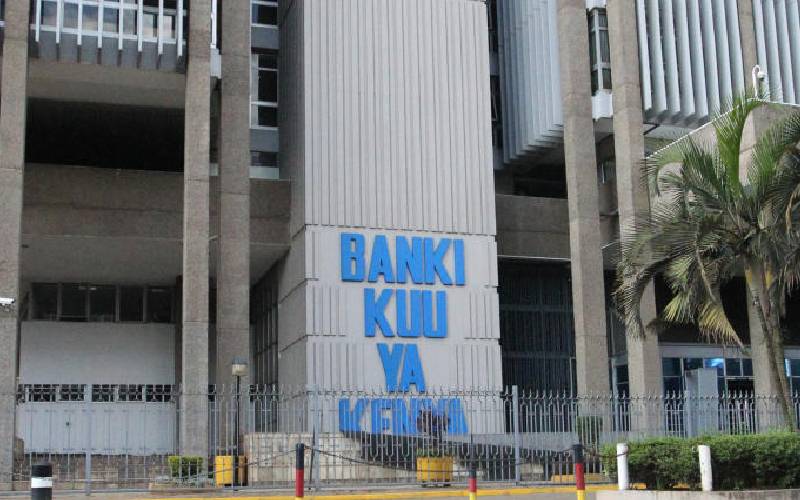The Central Bank of Kenya’s (CBK) lending to banks hit Sh55.47 billion in the financial year to June 2021.
This points to the regulator’s increased intervention to rescue lenders from a liquidity crunch.
The latest lending, under the liquidity support framework introduced five years ago, is 50 per cent higher than the Sh36.94 billion that CBK lent out in the financial year ended June 2020. READ MORE
The disclosures, contained in CBK’s latest annual report, shed light on the behind-the-scenes operations to rescue struggling lenders from sinking.
CBK’s enhanced liquidity support to the banks was despite the sector’s overall liquidity standing at 57 per cent at the end of June 2021, well above the minimum statutory level of 20 per cent.
This means most of the money is in the hands of large banks.
CBK did not disclose the names of the lenders that benefitted from the support, which coincided with the period Covid-19 disruptions increased loan defaults, mainly due to layoffs and salary cuts.
However, previous disclosures by the Cooperative Bank of Kenya subsidiary, The Kingdom Bank (formerly Jamii Bora Bank) showed CBK gave the lender a Sh20.96 billion interest-free loan in the year ended December to boost its liquidity position.
Cooperative Bank acquired a 90 per cent stake in Jamii Bora at Sh1 billion in August last year and renamed it The Kingdom Bank. The subsidiary reported Sh275 million half-year net profit.
By end of June 2021, at least six banks were in breach of various capital and liquidity ratios, reinforcing calls by CBK for continued consolidation in a sector that has 38 lenders serving a population of about 50 million people.
HF Group, Spire Bank, National Bank of Kenya, Ecobank Kenya, Consolidated Bank and First Community Bank made up the list of banks that did not reach some thresholds by end of June.The breaches shine a spotlight on the health of the local banking sector. The industry regulator usually reaches out to such lenders to craft remedial plans for restoring capital and liquidity levels.CBK has been alert to avoid a confidence crisis in the market such as the one caused by three lenders – Dubai, Imperial and Chase banks – which sank into receivership owing to mismanagement.In April 2016, CBK announced the rollout of a facility for commercial and microfinance banks that come under liquidity pressures not borne out of mismanagement.The regulator opened the window following the placement of Chase Bank under receivership on April […]
